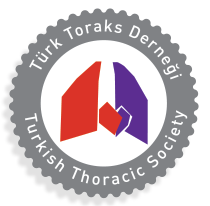Abstract
OBJECTIVE:
The role of a known contact history in coronavirus disease 2019 severity in secondary cases is unknown. The study was aimed to investigate the relationship between the close contact history and the severity of the disease in coronavirus disease 2019 pneumonia.
MATERIAL AND METHODS:
Hospitalized patients diagnosed with coronavirus disease 2019 pneumonia were included. The demo- graphic, clinical, and laboratory data of the patients were collected retrospectively and patients with or without close contact history were analyzed with respect to the severity of pneumonia.
RESULTS:
In a total of 100 patients with coronavirus disease 2019 pneumonia, 54 (54%) were male and mean age was 42.28 ±17.13 years. Respiratory rate/min (P = .033) was higher, duration of hospitalization (P = .043) was longer, need for oxygen therapy (P < .001), intensive care unit admission (P = .001), and severe pneumonia (P < .001) were higher in the group without a close contact history (n = 50). Male gender (OR, 4.77; 95% CI, 1.06-21.32; P = .041), not having a close contact history (OR, 4.03; 95% CI, 1.00-16.13;P = .049), non-hospital-associated patients (OR, 9.59; 95% CI, 1.47-62.41; P = .018), and dyspnea (OR, 7.58; 95% CI, 1.64-34.93;P = .009) were found to be risk factors for severe pneumonia.
CONCLUSION:
Known close contact history was associated with non-severe pneumonia and was found to be an independent predic- tor of disease severity in coronavirus disease 2019 pneumonia. The study provides evidence that filiation may prevent severe disease.
Cite this article as:
Irmak I, Gozde Inam M, Tekin F, Damadoglu E. Association between known close contact history and severity of COVID-19 pneumonia: A preliminary evidence supporting importance of filiation. Turk Thorac J. 2022;23(3):196-202.



